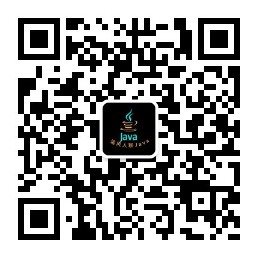1. General
As the old saying goes: people who can rest can work better. Body is the capital of revolution. If their body breaks down, they can no longer work.
To get back to business, we talked about the distributed configuration center config of SpringCloud before. In this article, we talked about the dynamic refresh of config configuration, but this dynamic refresh can only refresh one Config Client node at a time. If there are fewer service nodes, it's OK. If there are more business, there are hundreds of thousands of service nodes, and one by one, it's not appropriate.
Therefore, today, let's talk about the message Bus component Bus of SpringCloud. The Bus component can send refresh broadcasts to all Config clients with the help of MQ middleware. It only needs to call one interface to refresh the Config configuration of the whole cluster.
We use RabbitMQ as the middleware. For the construction of RabbitMQ cluster, please refer to my other article "construction of RabbitMQ 3.9.7 mirror mode cluster"( https://www.cnblogs.com/w84422/p/15356202.html).
Without much gossip, go straight to the code.
2. Git preparation
1) Create a repository to place configuration files, such as my config repo
2) Create my bus client folder
3) Under my bus client folder, create a new my bus client dev.yml configuration file, as follows:
info:
profile: dev
name: zhuifengren
desc: hello dev
3. Introducing Bus components into config server
3.1 main dependence
<dependency>
<groupId>org.springframework.cloud</groupId>
<artifactId>spring-cloud-starter-netflix-eureka-client</artifactId>
</dependency>
<dependency>
<groupId>org.springframework.cloud</groupId>
<artifactId>spring-cloud-config-server</artifactId>
</dependency>
<dependency>
<groupId>org.springframework.cloud</groupId>
<artifactId>spring-cloud-starter-bootstrap</artifactId>
<version>3.0.2</version>
</dependency>
<dependency>
<groupId>org.springframework.cloud</groupId>
<artifactId>spring-cloud-starter-bus-amqp</artifactId>
</dependency>
<dependency>
<groupId>org.springframework.boot</groupId>
<artifactId>spring-boot-starter-actuator</artifactId>
</dependency>
3.2 application.yml configuration
server: port: 42000 spring: application: name: my-bus-server rabbitmq: addresses: 192.168.1.22:5672,192.168.1.12:5672,192.168.1.11:5672 # Address of rabbitmq cluster username: guest password: guest virtual-host: / connection-timeout: 16000 cloud: config: server: git: uri: https://github.com/w84422/my-config-repo.git # git address force-pull: true # Force pull resource file default-label: main # Default pull branch search-paths: '{application}' # Put the configuration file in the folder corresponding to the service name of the access party. This writing method only takes effect in the config component settings management: endpoints: web: exposure: include: '*' endpoint: health: show-details: always eureka: client: service-url: defaultZone: http://zhuifengren1:35000/eureka/,http://zhuifengren2:35001/eureka/ # Address of Eureka Server
3.3 add notes for startup class
@SpringBootApplication @EnableConfigServer @EnableDiscoveryClient public class MyBusServerApplication { public static void main(String[] args) { SpringApplication.run(MyBusServerApplication.class, args); } }
3.4 start Config Server
Start Config Server
4. The config client introduces the Bus component
4.1 main dependence
<dependency>
<groupId>org.springframework.cloud</groupId>
<artifactId>spring-cloud-starter-netflix-eureka-client</artifactId>
</dependency>
<dependency>
<groupId>org.springframework.boot</groupId>
<artifactId>spring-boot-starter-web</artifactId>
</dependency>
<dependency>
<groupId>org.springframework.cloud</groupId>
<artifactId>spring-cloud-starter-config</artifactId>
<version>3.0.4</version>
</dependency>
<dependency>
<groupId>org.springframework.cloud</groupId>
<artifactId>spring-cloud-starter-bootstrap</artifactId>
<version>3.0.2</version>
</dependency>
<dependency>
<groupId>org.springframework.boot</groupId>
<artifactId>spring-boot-starter-actuator</artifactId>
</dependency>
<!-- rabbitmq -->
<dependency>
<groupId>org.springframework.cloud</groupId>
<artifactId>spring-cloud-starter-bus-amqp</artifactId>
</dependency>
4.2 bootstrap.yml configuration
server: port: 43000 spring: application: name: my-bus-client rabbitmq: addresses: 192.168.1.22:5672,192.168.1.12:5672,192.168.1.11:5672 username: guest password: guest virtual-host: / connection-timeout: 16000 cloud: config: profile: dev # Pulled profile label: main # Pulled branch name: my-bus-client # Specify the application for obtaining the configuration file remotely. spring.application.name will be taken by default discovery: enabled: true service-id: my-bus-server # Service name of config service myDesc: ${desc} eureka: client: service-url: defaultZone: http://zhuifengren1:35000/eureka/,http://zhuifengren2:35001/eureka/ # Address of Eureka Server management: endpoints: web: exposure: include: '*' endpoint: health: show-details: always
4.3 add notes for startup class
@SpringBootApplication @EnableDiscoveryClient public class MyBusClientApplication { public static void main(String[] args) { SpringApplication.run(MyBusClientApplication.class, args); } }
4.4 add Controller class for experiment
@RefreshScope @RestController public class MyBusClientRefreshController { @Value("${info.profile}") private String profile; @Value("${name}") private String name; @Value("${myDesc}") private String desc; @RequestMapping("/refresh-info") public String getInfo() { String info = "profile: " + profile + "<br>"; info += "name: " + name + "<br>"; info += "desc: " + desc + "<br>"; return info; } }
4.5 start the Config Client service and verify it
4.5.1 start Config Client service
Start two or more Config Client services
4.5.2 access the Controller interface to obtain configuration information
GET http://localhost:43000/refresh-info

4.5.3 modify the configuration on Git
Change the name to zhangsan
4.5.4 perform bus configuration refresh interface
On the Config Server or any Config Client node, execute the bus configuration refresh interface
POST http://localhost:42000/actuator/busrefresh
4.5.5 at all The Config Client node calls the Controller interface to retrieve the information
GET http://localhost:43000/refresh-info

5. Overview
Today, I talked about the Bus component of spring cloud. I hope it can be helpful to your work.
Welcome to like, comment, forward and pay attention:)
Pay attention to those who follow the wind to talk about Java and update Java dry goods every day.
6. official account
Fans talk about Java. Welcome to pay attention
